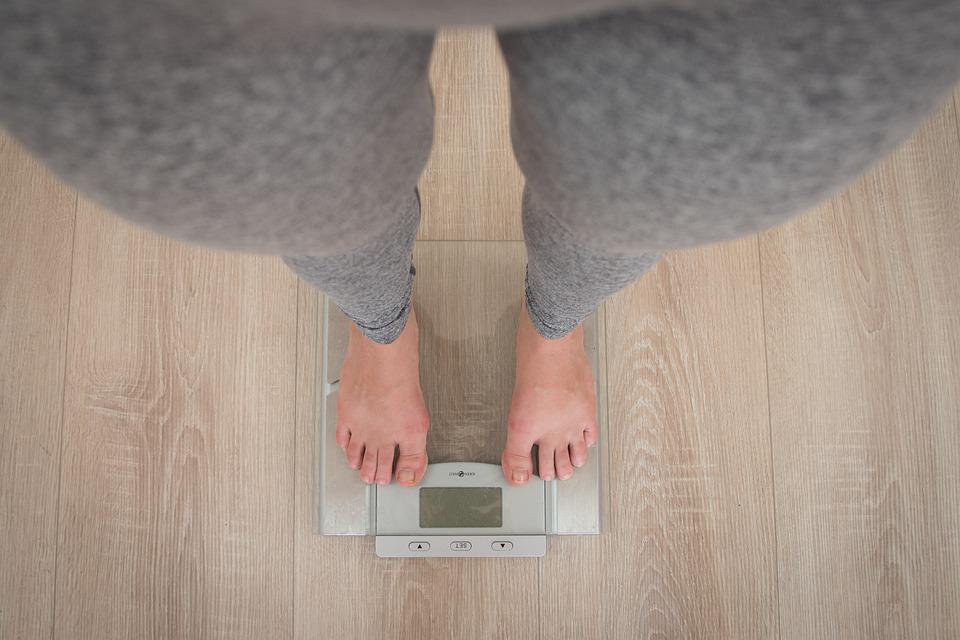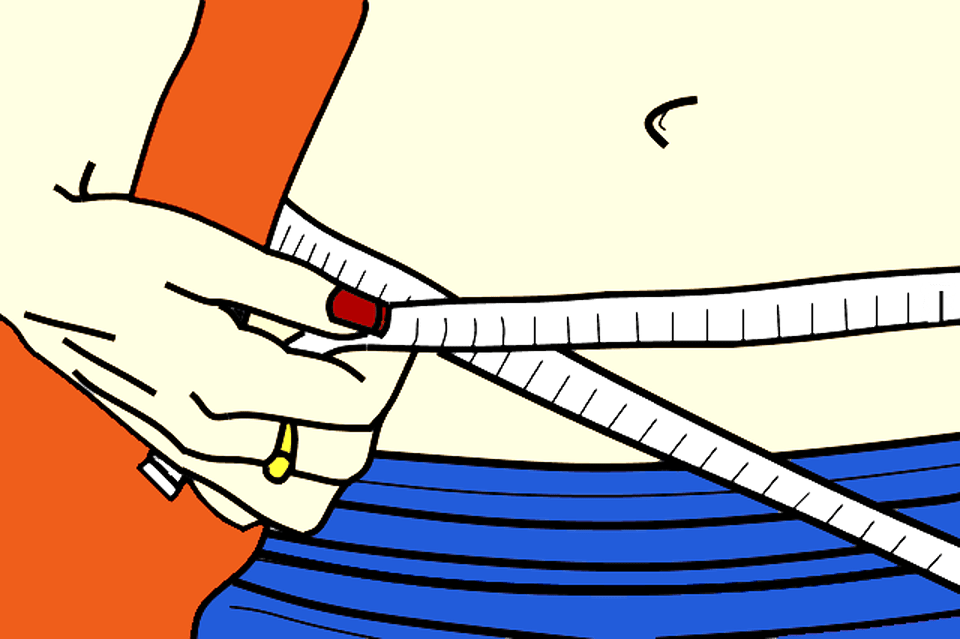
Weight loss is not a cure-all, but if your doctor thinks it will help, there are ways to do it safely. Most experts recommend losing 1-2 pounds a week for lasting results.
The main reason people have trouble sticking to a healthier eating plan is because they either feel hungry or unsatisfied after eating, or the plan eliminates major food groups.
Different people have different dietary needs, and what works for one person may not work for another.
When you are looking to lose weight, generally a low-carb diet or a diet focused on whole foods is most effective. However, there are some basic principles that always apply when trying to slim down.
Here are some science-backed tips to help you lose weight that include healthy eating, choosing carbs carefully, and that aim to:
- reduce your appetite and hunger levels while keeping you satisfied
- produce consistent weight loss over time
- help improve your metabolic health at the same time
If you want to lose weight, some of these tips may help, but quick weight loss is rarely sustainable. Focusing on long-term health and habits that you can stick with over time will help improve your health and are more likely to result in lasting weight loss.
Cut back on refined carbs
A way to help lose weight quickly is by reducing the intake of sugars and starches, which are carbohydrates. This can be done by following a low-carbohydrate diet or by replacing refined carbs with whole grains.
When you choose healthier options, you will be less hungry and end up eating less.
If you follow a low-carbohydrate diet, your body will burn stored fat for energy instead of carbohydrates.
If you eat complex carbs like whole grains, you will get more fiber and they will digest more slowly. This will make you fuller so you are satisfied.
The study found that a low carbohydrate diet was helpful for losing weight in older populations.
A low-carb diet may lead to people naturally eating fewer calories. This is because they may have a reduced appetite and won’t feel hungry as often.
The long-term effects of a low-carb diet are not well understood. It can be hard to stick to a low-carb diet, which may cause weight to fluctuate.
There are a few potential downsides to a low-carb diet that you should be aware of before you decide if it’s the right diet for you. Reduced calorie diets can also lead to weight loss and be easier to maintain for longer periods of time.
A 2019 study found that people who eat a lot of whole grains tend to have a lower body mass index.
Your doctor will be able to give you the best advice on how to lose weight.
Trying intermittent fasting
IF is a pattern of eating that involves consuming meals within a shorter time period during the day, punctuated by regular short-term fasts.
Studies have found that people who do intermittent fasting for a short period of time (up to 24 weeks) tend to lose weight.
The most common intermittent fasting methods include the following:
- Alternate day fasting (ADF): Fast every other day and eat normally on non-fasting days. The modified version involves eating just 25–30 percent of the body’s energy needs on fasting days.
- The 5:2 Diet: Fast on 2 out of every 7 days. On fasting days eat 500–600 calories.
- The 16/8 method: Fast for 16 hours and eat only during an 8-hour window. For most people, the 8-hour window would be around noon to 8 p.m. A study on this method found that eating during a restricted period resulted in the participants consuming fewer calories and losing weight.
You should aim to eat a healthy diet on days when you are not fasting, and be careful not to overeat.
Tracking your diet and exercise
If you want to lose weight, you should be aware of everything you eat and drink each day. The most effective way to do this is to log every item you consume, in either a journal or an online food tracker.
In 2017, researchers estimated that there would be 3.7 billion health app downloads by the end of the year, with apps for diet, physical activity, and weight loss being among the most popular. This is not without reason, as tracking physical activity and weight loss progress on the go can be an effective way of managing weight.
One study found that people who consistently tracked their physical activity lost weight. Another study found that people who tracked their food intake and exercise more often were more likely to lose weight. Even a simple device like a pedometer can help with weight loss.
Eating mindfully
Mindful eating is a way of paying attention to how and where you eat food. It can help you enjoy your food more and maintain a healthy weight.
Many people are barely aware of the food they are eating because they are too busy to eat slowly and pay attention to their food.
Techniques for mindful eating include:
- Sitting down to eat, preferably at a table: Pay attention to the food and enjoy the experience.
- Avoiding distractions while eating: Do not turn on the TV, laptop, or phone.
- Eating slowly: Take time to chew and savor the food. This technique helps with weight loss, as it gives a person’s brain enough time to recognize the signals that they are full, which can help to prevent over-eating.
- Making considered food choices: Choose foods that are full of nourishing nutrients and those that will satisfy for hours rather than minutes.
Eating plenty of fiber
Plant-based carbohydrates that cannot be digested in the small intestine are known as dietary fiber. Including more dietary fiber in your diet can make you feel fuller, and may lead to weight loss.
Fiber-rich foods include:
- whole-grain breakfast cereals, whole-wheat pasta, whole-grain bread, oats, barley, and rye
- fruit and vegetables
- peas, beans, and pulses
- nuts and seeds
Balancing gut bacteria
Some researchers are looking into the possibility that gut bacteria may have an impact on weight management.
Around 37 trillion bacteria live in the human gut.
There are different types and amounts of bacteria in everyone’s gut. Some types can make a person more efficient at harvesting energy from food, causing them to gain weight.
Some foods can increase the number of good bacteria in the gut, including:
- A wide variety of plants: Increasing the number of fruits, vegetables, and grains in the diet will result in an increased fiber uptake and a more diverse set of gut bacteria. People should try to ensure that vegetables and other plant-based foods comprise 75 percent of their meals.
- Fermented foods: These enhance the function of good bacteria while inhibiting the growth of bad bacteria. Sauerkraut, kimchi, kefir, yogurt, tempeh, and miso all contain good amounts of probiotics, which help to increase good bacteria. Researchers have studied kimchi widely, and study results suggest that it has anti-obesity effects. Similarly, studies have shown that kefir may help to promote weight loss in overweight women.
- Prebiotic foods: These stimulate the growth and activity of some of the good bacteria that aid weight control. Prebiotic fiber occurs in many fruits and vegetables, especially chicory root, artichoke, onion, garlic, asparagus, leeks, banana, and avocado. It is also in grains, such as oats and barley.
Getting a good night’s sleep
A number of studies have found that people who sleep for less than 5 or 6 hours per night are more likely to be obese. There are a few explanations for this.
According to research, sleeping poorly or not enough can make it harder for the body to convert calories into energy, which is called metabolism. When metabolism isn’t working as efficiently, the body may store unused energy as fat. Also, not getting enough sleep can cause an increase in the production of insulin and cortisol, which are hormones that can contribute to fat storage.
Ghrelin signals hunger The amount of time someone spends sleeping can also influence the way the hormones that control appetite, leptin and ghrelin, work. Leptin signals to the brain that the person is full, while ghrelin signals hunger.
Eat protein, fat, and vegetables
Aim to include a variety of foods at each meal. To balance your plate and help you lose weight your meals should include:
- a protein source
- fat source
- vegetables
- a small portion of complex carbohydrates, such as whole grains
Protein
If you want to lose weight and maintain your health, you need to eat the right amount of protein.
The evidence suggests that consuming enough protein might help improve some risk factors for heart disease and other conditions, including appetite and body weight.
Generally, an average male needs about 56-91 grams per day, and the average female needs 46-75 grams per day, but many factors influence protein needs. Here are guidelines to help you figure out how much protein to eat without eating too much:
- 0.8g/kg of body weight
- 1-1.2g/kg of body weight for people 65 and older
- 1.4-2g/kg of body weight for athletes
A diet that contains the right amount of protein can help you feel fuller and more satisfied, which may lead to you eating less and snacking less.
Healthy protein sources include:
- meat: beef, chicken, pork, and lamb
- fish and seafood: salmon, trout, sardines, and shrimp
- eggs
- plant-based proteins: beans, legumes, quinoa, tempeh, and tofu
Vegetables
Some vegetables, such as potatoes, sweet potatoes, winter squash, and corn, are higher in carbs than others. All vegetables are nutrient-rich and healthy foods to add to your diet.
You should be aware of how much of these vegetables you’re eating because they are classified as complex carbs. They contain fiber, but too much could cause problems.
Vegetables to include more of:
- broccoli
- cauliflower
- spinach
- tomatoes
- kale
- Brussels sprouts
- cabbage
- Swiss chard
- lettuce
- cucumber
- peppers
Healthy fats
Your body requires healthy fats regardless of what kind of diet you’re on. olive oil and avocado oil are two great options to include in your diet. Adding things like nuts, seeds, olives, and avocados can make your diet more delicious and healthy.
Other fats should be used in moderation due to their higher saturated fat content.
Move your body
Although you don’t need to exercise to lose weight, it can help you shed pounds more quickly. Weightlifting in particular has many benefits.
Lifting weights helps you burn calories and prevents your metabolism from slowing down, which is a common side effect of weight loss.
You should lift weights three to four times a week if you want to get stronger. If you don’t know how to lift weights, find a trainer to help you get started. Make sure to tell your doctor about your new exercise plan.
While lifting weights is an excellent way to get in shape, there are many other activities that can help you lose weight and improve your health. Walking, jogging, running, cycling, and swimming are all great exercises that can help you reach your fitness goals.
Cardio and weightlifting can help with weight loss and have many other benefits for your health.
Managing your stress levels
When you are stressed, your body releases hormones like adrenaline and cortisol. These hormones make you less hungry as part of the body’s fight or flight response.
Cortisol can remain in the bloodstream for an extended period when people are under constant stress, increasing their appetite and potentially causing them to eat more.
Cortisol signals that the body needs to replenish its nutritional stores by eating carbohydrates.
Insulin is responsible for transporting sugar from carbohydrates in the blood to the muscles and brain. If the individual does not use this sugar for energy, the body will store it as fat.
Eight weeks of stress management significantly reduces the body mass index (BMI) of overweight and obese children and adolescents, researchers found.
Some methods of managing stress include:
- yoga, meditation, or tai chi
- breathing and relaxation techniques
- spending some time outdoors, for example walking or gardening
How fast will you lose weight?
After the first week of a diet plan, you may lose weight more slowly but more consistently. In the first week, you typically lose a mix of both water weight and body fat.
People who are just starting to diet and exercise may lose weight more quickly than people who have been doing it for a while.
Most people can safely lose 1-2 pounds per week. If you want to lose weight faster than that, you should speak to your doctor to see how many calories you should cut back on.
Aside from weight loss, a low-carb diet can improve your health in a few ways, though the long-term effects are not yet known:
- blood sugar levels tend to significantly decrease on low-carb diets
- triglycerides tend to go down
- LDL (bad) cholesterol goes down
- blood pressure improves significantly
A more balanced diet that includes complex carbohydrates is more sustainable than a diet that only consists of whole foods.














